 W
WAlldays & Onions was an English engineering business and an early automobile manufacturer based at Great Western Works and Matchless Works, Small Heath, Birmingham. It manufactured cars from 1898 to 1918. The cars were sold under the Alldays & Onions name. Alldays also built an early British built tractor, the Alldays General Purpose Tractor. After the First World War the cars were sold under the name Enfield Alldays. Car production seems to have ceased in the 1920s but the manufacture of many other items continued. The company became part of the Mitchell Cotts Group.
 W
WClayton & Shuttleworth was an engineering company located at Stamp End Works, Lincoln, Lincolnshire, England. The company was established in 1842 when Nathaniel Clayton (1811–1890) formed a partnership with his brother-in-law, Joseph Shuttleworth (1819–83).
 W
WDavid Brown Engineering Limited is an English engineering company, principally engaged in the manufacture of gears and gearboxes. Their major gear manufacturing plant is in Swan Lane, Lockwood, Huddersfield, adjacent to Lockwood railway station. It is named after the company's founder, David Brown, though it is more closely associated with his grandson, Sir David Brown (1904–1993).
 W
WThe Ferguson-Brown Company was a British agricultural machinery company formed by Harry Ferguson in partnership with David Brown.
 W
WField-Marshall is a brand of farm tractor which was manufactured by Marshall, Sons & Co. of Gainsborough, Lincolnshire in the United Kingdom.
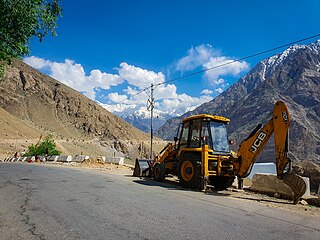 W
WJCB is a manufacturer of equipment for construction, agriculture, waste handling, and demolition, based in Rocester, Staffordshire, England. It produces over 300 types of machines, including diggers (backhoes), excavators, tractors, and diesel engines, across 22 factories spanning Asia, Europe, North America, and South America; its products are sold in over 150 countries.
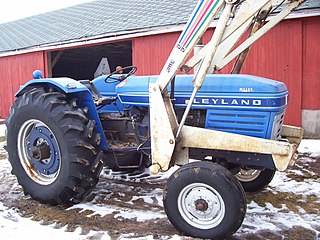 W
WLeyland tractors was created after the merger of the British Motor Corporation (BMC) with Leyland Motors to form British Leyland in 1968. Nuffield Tractors had been started after World War II by Lord Nuffield owner of Morris Motors LImited which had become part of BMC in 1951.
 W
WMann's Patent Steam Cart and Wagon Company manufactured steam powered road vehicles in Leeds, England.
 W
WMarshall, Sons & Co. was a British agricultural machinery manufacturer founded in 1848. The company was based in the Britannia Iron Works, Gainsborough, Lincolnshire. Early production was of steam engines and agricultural machinery. Later production included diesel tractors such as the Field Marshall, Track Marshall and former Leyland wheeled tractors.
 W
WMassey Ferguson Limited is a multi-national manufacturer of agricultural machinery. The company was established in 1953 through the merger of farm equipment makers Massey-Harris of Canada and the Ferguson Company of the United Kingdom. It was based in Brantford, Ontario, until 1988. The company transferred its headquarters in 1997 to Buffalo, New York, before it was acquired by AGCO, the new owner of its former competitor Allis-Chalmers. Massey Ferguson is one of several brands produced by AGCO, and it remains a major seller around the world.
 W
WJ&H McLaren was a British engineering company in Hunslet, Leeds, England, that manufactured traction engines, stationary engines and later, diesel engines.
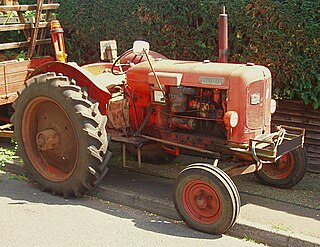 W
WThe Nuffield Universal was a tractor produced from 1948 by the Agricultural Division of Morris Motors, later a subsidiary of The British Motor Corporation Limited. When William Morris the founder of Morris Motors was honoured with a title and elevated to the peerage he chose the name of his Nuffield, Oxfordshire village. When in 1948 the Morris Motors Agricultural Division launched its tractor range, the name Nuffield was chosen to be the brand name for the company's agricultural products. The design was similar to the new David Brown built tractors as the designer Dr. Merit had also worked on the design of the David Brown 50D before moving to Nuffield.
 W
WS E Opperman was a tractor manufacturer in England. After he saw the Bond Minicar he decided to build his own four-wheel microcar at a factory in Elstree, Hertfordshire.
 W
WRichard Hornsby & Sons was an engine and machinery manufacturer in Grantham, Lincolnshire, England from 1828 until 1918. The company was a pioneer in the manufacture of the oil engine developed by Herbert Akroyd Stuart, which was marketed under the Hornsby-Akroyd name. The company developed an early track system for vehicles, selling the patent to Holt & Co. in America. In 1918, Richard Hornsby & Sons became a subsidiary of the neighbouring engineering firm Rustons of Lincoln, to create Ruston & Hornsby.
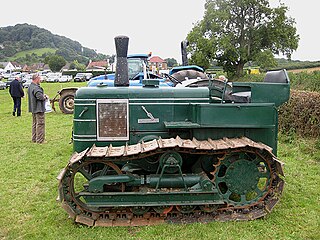 W
WTrack Marshall was a brand of earthmoving equipment who were active during WWII building tanks. Later, they produced a range of crawler tractors, based on the wheeled tractor Field Marshall brand. In 1956 the first Track Marshall bulldozer model was introduced and later the Challenger 3 followed by the Challenger 33, the TM55 and also the successful six-cylinder TM70. They also built the TM 955 track loader and also a range of rubber tracked bulldozers. The company was in business for some 50 years, eventually closing in 1990 after new machines replaced older technology.
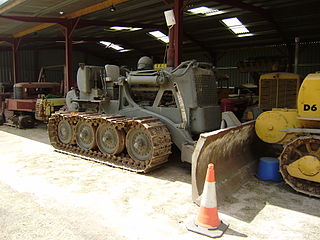 W
WThe Vickers VR180 Vigor was a British crawler tractor, built from 1951 to 1958 by Vickers-Armstrongs. During World War II, the company gained substantial experience in the design and construction of tanks and continuous track vehicles. After the war they developed a civilian crawler tractor that could be sold for use in peacetime reconstruction work. It was notable for the unusual sophistication of its chassis.